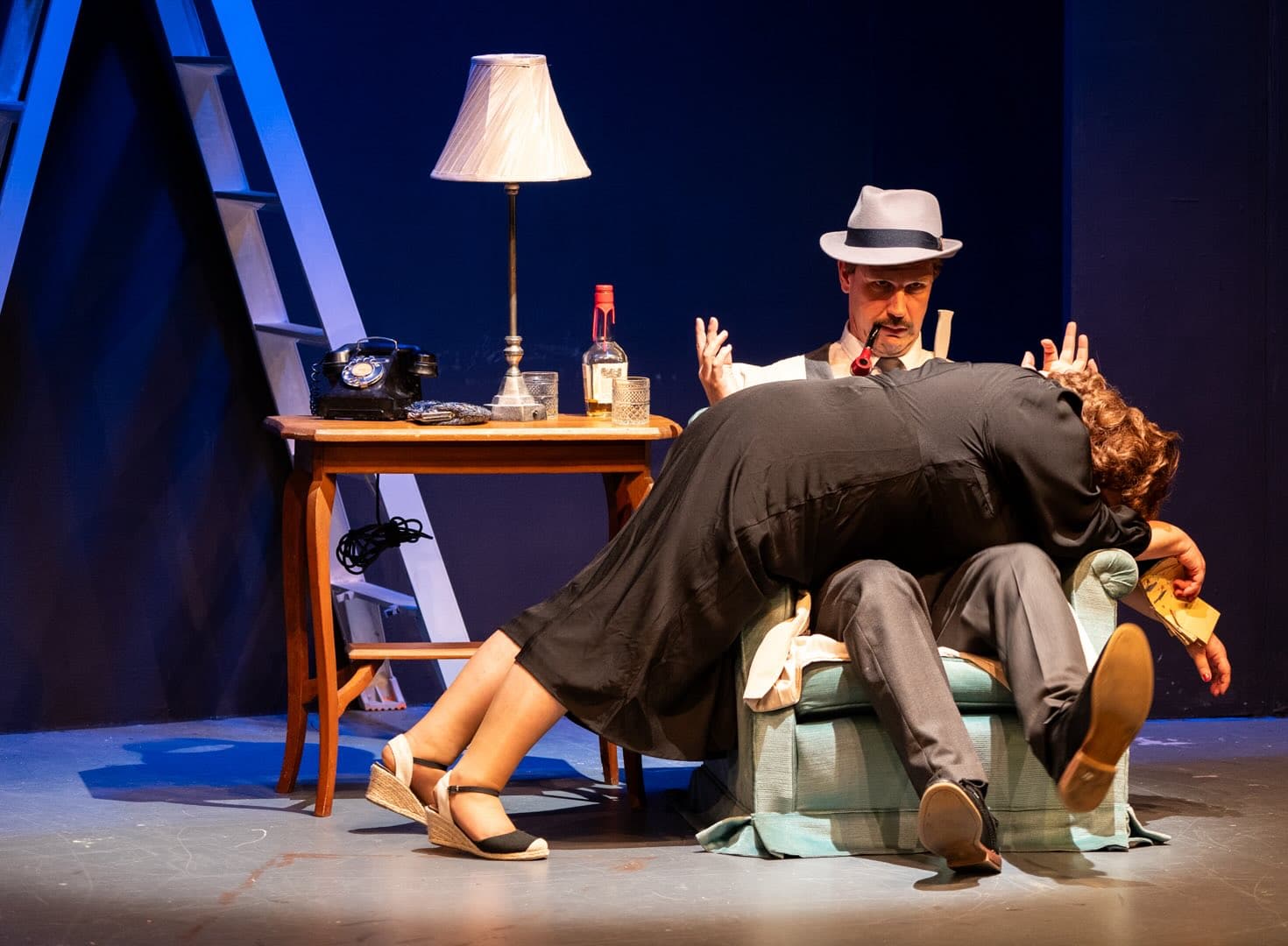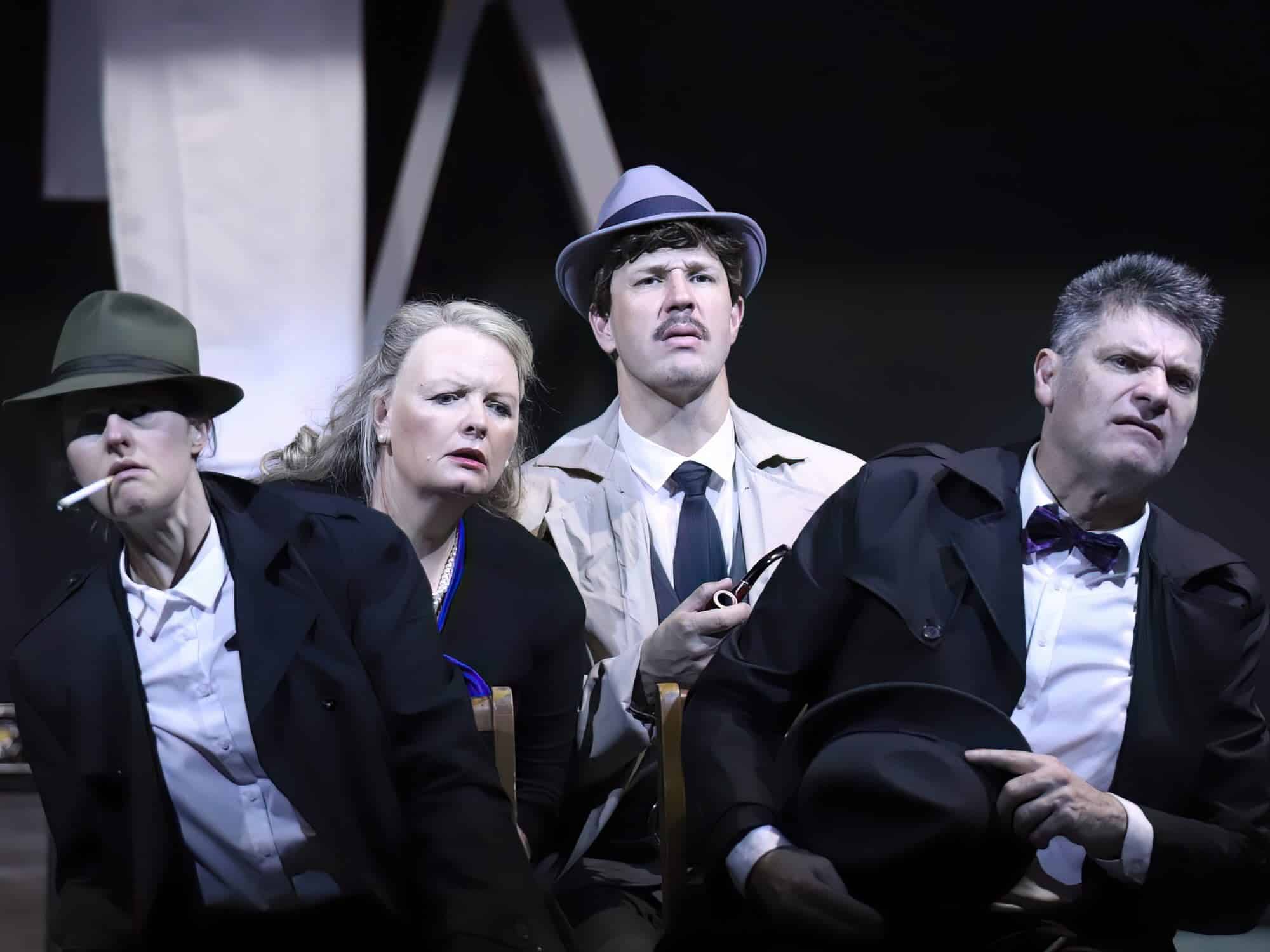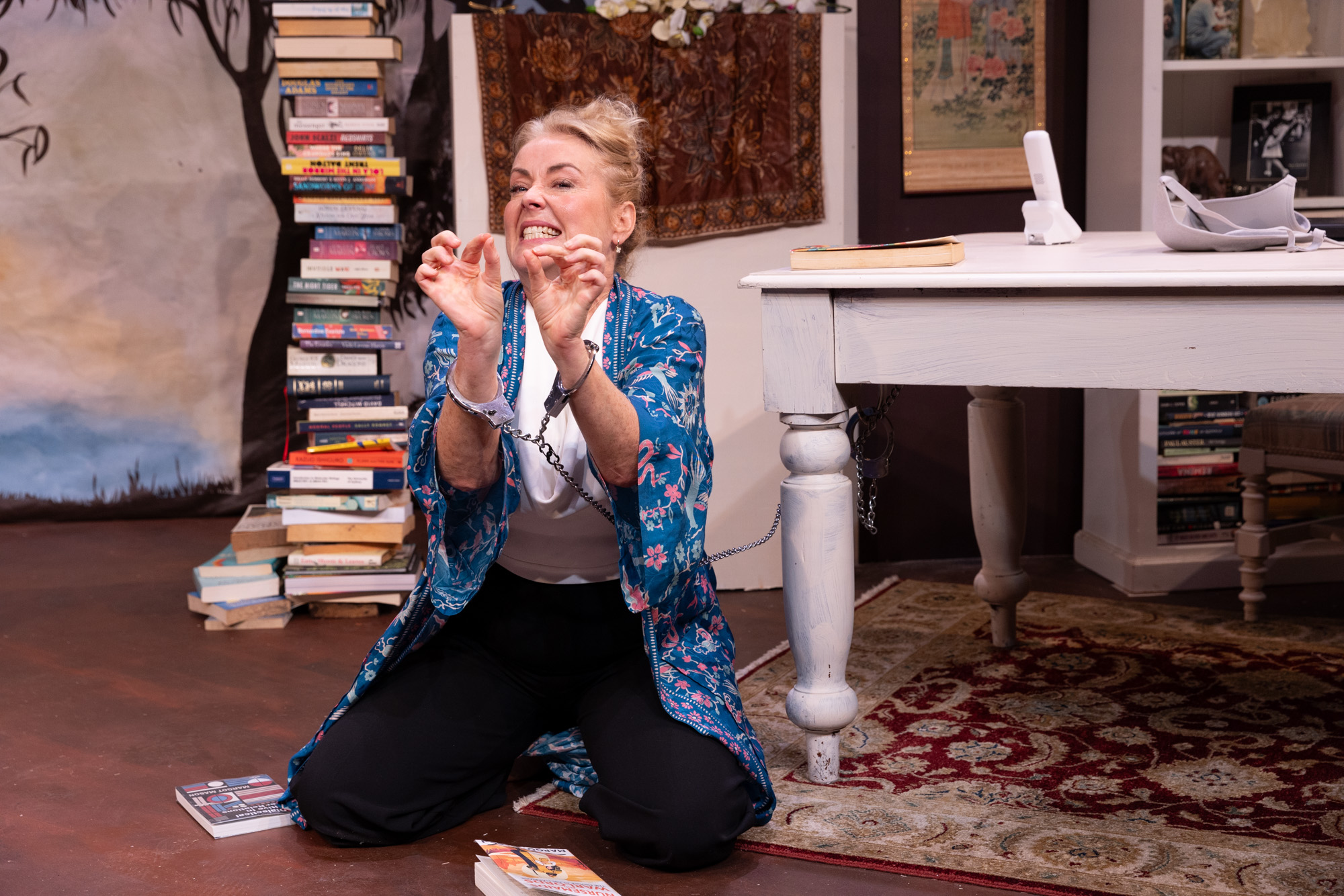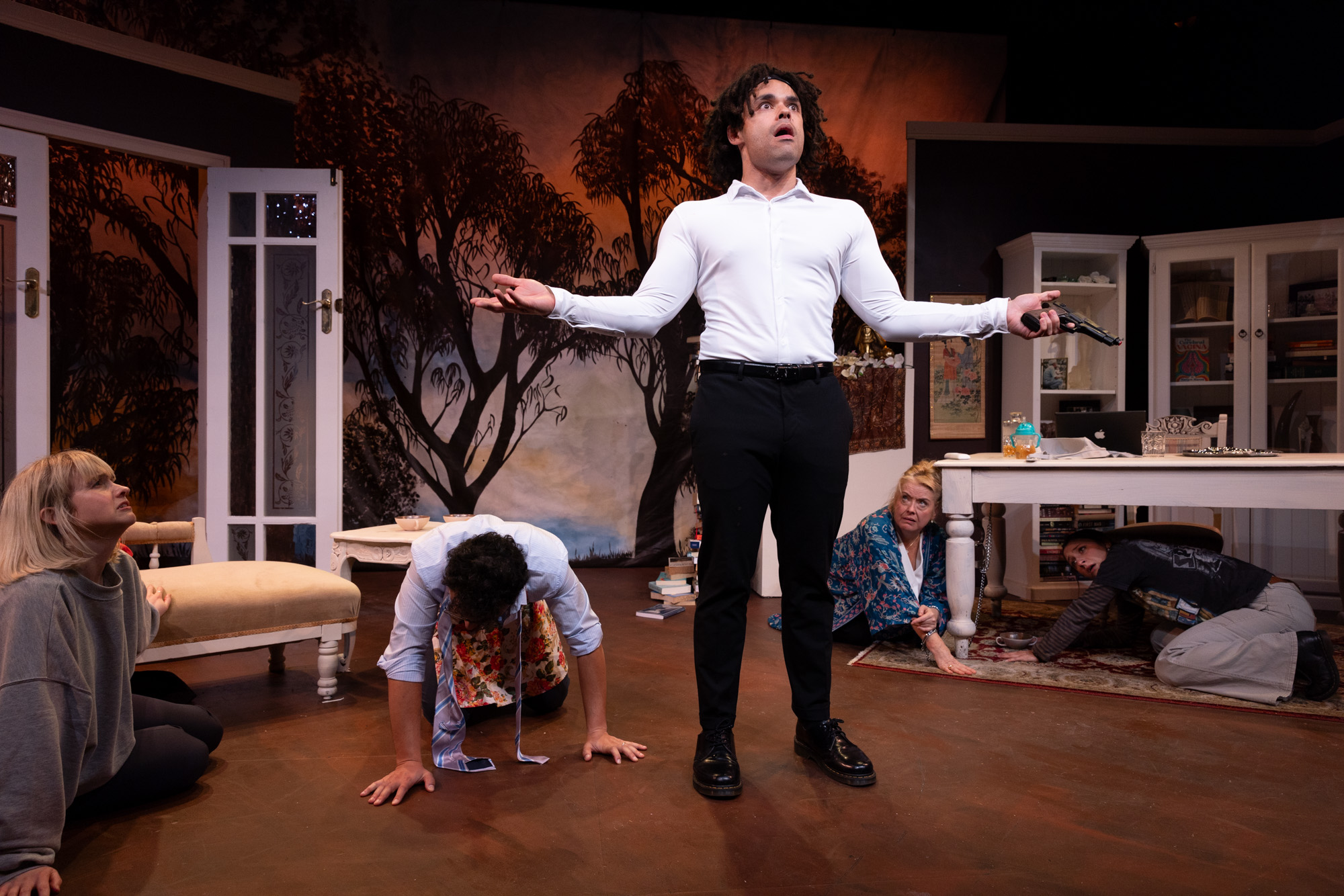High-paced physical comedy and a wildly multi-talented cast carry this chaotic and hilarious staged version of Hitchcock’s The 39 Steps at Cronulla Arts Theatre.
Director Cheryl Butler’s production is charming and deft. With a cast of four and a character list of more than 150, this production is a serious ask of its ensemble. The four actors switch accents, attitudes, and hats at pace throughout the play and manage to get both laughs and sympathetic groans from the crowd.


Gavin Leahy’s Richard Hannay is charming and moves almost like Ray Bolger’s Scarecrow in the Wizard of Oz film; his pratfalls and facial expressions add jokes to the already enjoyable script. He and Angela Gibson (who play the three key female characters who cross Hannay’s path) both have genuine chemistry and some of the most precise timed visual gags.
The two clowns, Gary Clark and Kathryn Bray have several sequences where the gags are layered as they switch characters and accents with simple movements or costume shifts. These two actors create the groundwork for the moments of romantic chemistry, always following them with a wink and a nudge.
Despite a reasonably long run time for a comedy, the show doesn’t lose your attention. The night we attended, the laughs only seemed to build as the night went along. Using a standalone door as a prop starts slightly funny and grows to be consistently hilarious. The suits are sharp, the staging is mostly minimal, and that’s also worked into the comedy of the thing. The prop work, especially from Kathryn Bray, is excellent.


Patrick Barlow’s stage adaptation takes a loving and goofy approach to the source material. The iconic plane chase appears in shadow puppet relief, and there’s a dramatic and hilarious action sequence on a train that both pays tribute to and pokes fun at the original.
If you’re looking for a faithful Hitchcock adaptation, this is not the play for you, but some passing knowledge of the film will deepen the experience of the show and add a few jokes that might go over the head of someone going in cold. The energy required to convincingly carry off a clowning play is immense, and Cronulla Arts Theatre’s production of The 39 Steps has it and then some. I would thoroughly recommend it.
For Tickets to The 39 Steps, please book @ https://www.artstheatrecronulla.com.au/the39steps
The season runs from 25 October to 30 November, with Wednesday, Friday, and Saturday at 8 p.m. and Sunday matinees on 27 October and 3, 17, and 24 November at 2 p.m.
Photographer: Dan Binger, Graham West, Jeffrey Gall, Mark Phillips, Peter Gale













